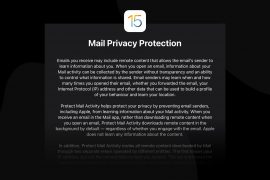The topic of sending an anonymous email raises many questions and concerns. As electronic communication is now ubiquitous in both personal and professional communications, the issue of anonymity in emails has become a major concern. Sending an anonymous email may seem tempting for various reasons, but it is essential to understand the implications associated with this practice. This is precisely what we propose to examine in this article.
Why Send an Anonymous Email?
Protecting Privacy
Sending an anonymous email can be a way to protect your privacy. This might involve denouncing an injustice, disclosing sensitive information, or speaking out on delicate topics while preserving one’s identity.
Avoiding Spam
Creating a different anonymous email address from your regular one can prevent your personal information or professional account from being used for spam. This can be useful when you need to register on online sites (purchases, events, surveys, etc.).
Reporting Abuse
Anonymity can be crucial for reporting abuses, whether within a company, an institution, or society at large. Whistleblowers sometimes use anonymous emails to bring to light illegal or unethical activities.
Avoiding Online Harassment
In the context of online harassment, sending an anonymous email can be a method to protect oneself from malicious individuals while communicating with authorities or organizations that can help.
Besides these main reasons, the use of anonymous emails can also serve certain public figures who need to communicate sensitive or confidential information (journalists, politicians, etc.), and also in some countries with particularly oppressive regimes.
Is It Legal in France to Send an Anonymous Email?
In France, sending an anonymous email is not illegal in itself, but it is subject to certain restrictions. Privacy and defamation laws apply, which means if you use anonymity to commit illegal acts, you could be prosecuted. Anonymity does not protect you from legal responsibility in case of reprehensible behavior.
Different Ways to Send an Email Anonymously
Creating a New Email Account
This is probably the simplest solution as you just have to create a new account on Gmail or Outlook, for example, unrelated to your usual account. To remain anonymous, simply invent the name and address you wish to display when sending anonymous emails.
Using an Anonymous Email Service
There are anonymous email services that allow users to send emails without revealing their identity. These services often rely on encryption and the use of gateways to mask the sender‘s IP address.
Here are some examples of anonymous email services: Send Email, Secure Mail, or Anonymousemail.
Using a VPN Network
A VPN (Virtual Private Network) can hide your IP address by routing your data through servers in other countries. This can help conceal your geographic location and enhance your anonymity. NordVPN and ExpressVPN are examples of VPN services.
Using the Tor Network
Tor is a decentralized network that conceals your IP address by bouncing your traffic through various nodes. It offers a high degree of anonymity, but its use can be complex for beginners.

The Case of Disposable Temporary Emails
These are email addresses created for limited use over a short period, sometimes only a few hours or days.
Disposable temporary addresses are designed for situations where you want to receive information, confirmation links, or temporary messages without revealing your main email address or real identity. However, they are generally not suitable for important or permanent communications, as the messages are often ephemeral.
How to Create an Anonymous Email Account?
Creating an anonymous email account requires a cautious approach. Here are some basic steps:
1) Choose a Secure Email Service
Opt for an email service that respects your privacy, like ProtonMail or Tutanota, which offer end-to-end encryption.
2) Use a Pseudonym
Avoid using personal information when creating the account. Choose a pseudonym instead of your real name.
3) Use a VPN or the Tor Network
To enhance anonymity, use a VPN or the Tor network when creating and using your email account.
Our Advice
- Choose an email service that supports privacy and anonymity, like ProtonMail or Tutanota. These services offer encryption and privacy protection features.
- Use a VPN or the Tor network to hide your IP address when sending emails. This will strengthen your online anonymity.
- Do not reveal personal information in your emails, such as your name, address, or other details that could identify you.
- Use a pseudonym or a fictitious name instead of your real name when identifying yourself in your emails.
- For very temporary communications, consider using temporary email services that do not leave long-term traces.
Online anonymity is a practical and powerful tool, but remember that it must be used responsibly and ethically to maintain a balance between privacy protection and compliance with laws.







